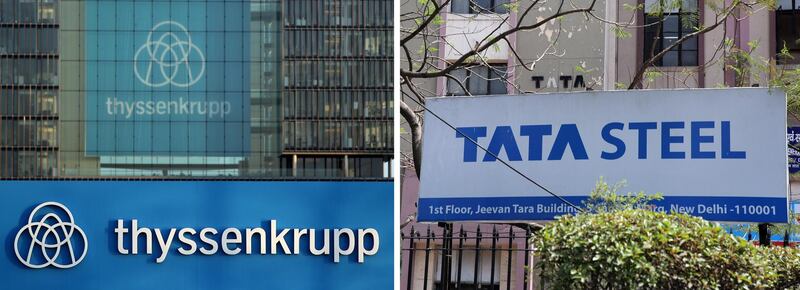The future of Tata Steel’s two giant European plants has been thrown into doubt after a long-proposed venture with German rival Thyssenkrupp looked at risk of collapsing.
Tata, which operates the iconic blast furnace at Port Talbot in the UK and another big plant in the Netherlands, has been trying to find a solution for its European business since being hit by the 2016 commodity crisis, though many of its troubles stem before then. With a European joint venture now likely to be rejected, it will have to find a plan B.
Thyssenkrupp said on Friday that it’s abandoning plans to split itself in two and that it didn’t expect regulators to approve the joint venture with Tata. The reaction from shareholders was telling: Thyssenkrupp surged the most on record while Tata slumped as much as 7.7 per cent in Mumbai. The Indian company said it will keep focusing on improving its European business, while looking for new options that can clear regulatory hurdles.
“The proposed joint venture was an important strategic initiative for Tata Steel to create a sustainable portfolio in Europe” that would have benefited its balance sheet, Tata said in a statement. “Tata Steel remains committed to the above strategy and would explore all options to achieve similar outcomes in the future.”
The Indian steelmaker bought Corus Group for about $13 billion in 2007 to gain control of its European units, but has been closing and selling plants in the UK since the 2008 financial crisis to make the business more profitable. The nadir came in 2016, when it put all its British sites up for sale, though it resolved to keep the Port Talbot plant.
“The plant will obviously keep running. We want to make sure we run it well,” Tata chief financial officer Koushik Chatterjee said on a conference call, adding that he expects Port Talbot to be profitable this year.
Thyssenkrupp and Tata had offered concessions to regulators earlier this year to win antitrust approval for the European joint venture, including selling plants in Belgium, Spain and the UK. The companies said that offering further concessions would have undermined the business case for the deal.







